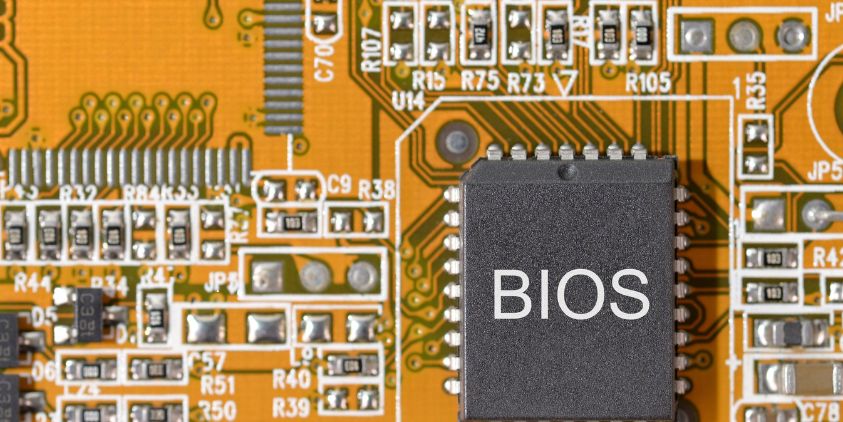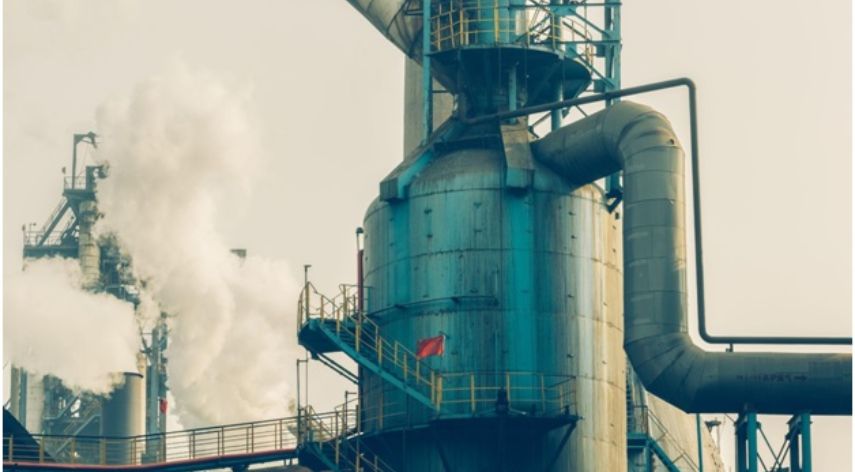A Comprehensive Analysis http vaad up nic in

The Revenue Court Computerized Management System (RCCMS), accessible via http://vaad.up.nic.in, is a transformative digital initiative by the Uttar Pradesh government aimed at enhancing transparency, efficiency, and accessibility in the state’s revenue court proceedings. Developed by the National Informatics Centre (NIC), Uttar Pradesh State Unit, this system digitizes the management of revenue-related legal cases, ensuring that critical information such as hearing dates, court orders, and case statuses is readily available to litigants, advocates, and the general public. This article explores the features, functionalities, and impact of the RCCMS, focusing on its role in modernizing revenue courts, facilitating services like succession (varasat) applications, and improving access to justice. It also examines the system’s challenges, its integration with broader governance frameworks, and its significance in the context of Uttar Pradesh’s administrative landscape.
Background of Revenue Courts in Uttar Pradesh
Revenue courts in Uttar Pradesh handle a wide range of disputes related to land, property, and succession. These courts, ranging from Nayab Tehsildar to the Revenue Board (Rajswa Parishad), address issues such as land disputes, inheritance claims, and land consolidation (chakbandi). Historically, these courts relied on manual processes, leading to delays, inefficiencies, and a lack of transparency. The introduction of the RCCMS addresses these challenges by leveraging technology to streamline operations and make judicial processes more accessible.
The RCCMS was launched to computerize all revenue courts in the state, with the primary objective of achieving 100% transparency in court proceedings. As of August 2025, the system covers 3,070 courts, managing over 25.55 million cases, of which 24.36 million have been disposed of, leaving 1.19 million pending cases. The platform provides real-time access to case details, court orders, and hearing schedules, reducing the need for physical visits to court premises and minimizing bureaucratic hurdles.
Key Features of the RCCMS Portal
The RCCMS portal, accessible at http://vaad.up.nic.in, offers a range of services designed to enhance user experience and ensure seamless interaction with revenue court processes. Below are the key features of the platform:
1. Case Status Tracking
Users can track the status of their cases using the computerized case number or other identifiers such as plaintiff/defendant details or hearing dates. By visiting the portal and navigating to the “Case Search” section, users can enter their case number to view details such as the case’s current status, hearing dates, and court orders. This feature eliminates the need for repeated court visits and empowers litigants to stay informed about their cases from anywhere.
2. Succession (Varasat) Applications
One of the most significant services offered by the RCCMS is the ability to file online applications for succession or inheritance (varasat) certificates. These certificates are essential for transferring land ownership after the death of a property holder. The portal allows users to download Form RC-9 (previously PK-11) in PDF format and submit applications online. The process involves entering details such as the applicant’s name, Aadhaar number, mobile number, and details of the deceased property holder. Once submitted, users receive an application number to track the status of their varasat application.
3. Cause List and Hearing Dates
The portal provides access to daily cause lists and hearing schedules, enabling litigants and advocates to stay updated on court proceedings. This feature ensures that users are aware of upcoming hearings and can prepare accordingly, reducing the risk of missing critical court dates.
4. Court Orders
Users can access court orders directly through the portal by selecting options such as case number, order date, or judicial member. This feature enhances transparency by making judicial decisions publicly available, allowing litigants to review orders without relying on intermediaries.
5. Land Dispute Information
The RCCMS allows users to check whether a specific plot or khasra number is involved in a legal dispute. By entering details such as district, tehsil, pargana, village, and plot number, users can access information about ongoing cases related to specific land parcels. This is particularly useful for individuals looking to purchase or transfer property, as it helps verify the legal status of the land.
6. Mobile Application
The Uttar Pradesh government has launched the “UP Vaad Services” Android app, which mirrors the functionalities of the RCCMS portal. Users can check case statuses, hearing dates, and other details using their mobile devices, making the system even more accessible.
7. Chakbandi (Land Consolidation) Courts
The RCCMS also integrates with the Chakbandi Court Computerized Management System, which manages land consolidation processes. This includes tasks such as land record purification, plot creation, possession changes, and preparation of final records. The system supports the implementation of the Uttar Pradesh Jot Chakbandi Act, 1953, which has facilitated land consolidation in over 123,840 villages across the state.
8. E-Library and Legal Resources
The portal provides access to important legal documents, including the Uttar Pradesh Revenue Code (Amendment) Acts of 2019, 2020, and 2021, as well as the Uttar Pradesh Revenue Code Bill of 2006. These resources are available in e-book and PDF formats, enabling users to understand the legal framework governing revenue courts.
How to Use the RCCMS Portal
The RCCMS portal is designed to be user-friendly, with a simple interface that caters to both tech-savvy users and those with limited digital literacy. Below is a step-by-step guide to accessing key services on the portal:
Checking Case Status
-
Visit http://vaad.up.nic.in.
-
On the homepage, locate the “Case Search Method” section.
-
Select the “Computerized Case Number” option.
-
Enter the case number in the provided box and click “Display.”
-
The portal will display details such as the case status, hearing dates, plaintiff/defendant details, and relevant court orders.
Applying for a Succession (Varasat) Certificate
-
Navigate to the “Online Application” section on the RCCMS homepage.
-
Click on the “Succession/Varasat” link to access Form RC-9.
-
Log in using your mobile number and verify with an OTP.
-
Fill in the required details, including applicant information, details of the deceased, and land details.
-
Save the information at each step and note down the application number for future reference.
-
Track the application status using the “Varasat Application Status” option on the portal.
Checking Land Dispute Status
-
Go to the “Know the Status of Disputed Land” section on the homepage.
-
Select the district, tehsil, pargana, village, and plot/khasra number.
-
Click “Display” to view any ongoing disputes related to the specified land.
Accessing Court Orders
-
Select the “Court Orders” option from the homepage.
-
Choose a search criterion (e.g., case number, order date, or judicial member).
-
Enter the relevant details and click “Display” to view the order.
Impact of the RCCMS on Governance and Society
The RCCMS has significantly transformed the way revenue courts operate in Uttar Pradesh, with far-reaching implications for governance and society. Below are some of the key impacts:
1. Enhanced Transparency
By making case details, court orders, and hearing schedules publicly available, the RCCMS ensures that judicial processes are transparent. This reduces the scope for corruption and favoritism, as litigants can monitor their cases without relying on intermediaries.
2. Improved Accessibility
The online portal and mobile app allow citizens to access court-related services from the comfort of their homes. This is particularly beneficial for rural residents who may face challenges traveling to court premises. The availability of services in both Hindi and English further enhances accessibility.
3. Time and Cost Savings
The digitization of processes such as case tracking and varasat applications eliminates the need for multiple court visits, saving time and money for litigants. The online submission of forms and real-time updates further streamline the process.
4. Empowerment of Citizens
The RCCMS empowers citizens by providing them with direct access to legal information and services. This is particularly important for marginalized communities who may lack the resources or knowledge to navigate traditional court systems.
5. Support for Land Consolidation
The integration of chakbandi courts into the RCCMS has streamlined land consolidation processes, leading to better land management and increased agricultural productivity. The system ensures that land records are accurate and up-to-date, reducing disputes and improving land use planning.
6. Reduction in Pendency
With over 24.36 million cases disposed of out of 25.55 million, the RCCMS has played a crucial role in reducing case pendency. The system’s efficiency in tracking and managing cases helps courts prioritize and resolve disputes more quickly.
Challenges and Limitations
Despite its numerous benefits, the RCCMS faces certain challenges that need to be addressed to maximize its effectiveness:
1. Digital Literacy
While the portal is user-friendly, many citizens in rural Uttar Pradesh may lack the digital literacy required to navigate it effectively. This is particularly true for older individuals or those with limited access to smartphones and the internet.
2. Internet Connectivity
Poor internet connectivity in rural areas can hinder access to the RCCMS portal and mobile app. This is a significant barrier in a state like Uttar Pradesh, where rural populations form a large portion of the demographic.
3. Data Accuracy
The accuracy of data entered into the RCCMS, such as case numbers or land details, is critical for the system’s effectiveness. Errors in data entry or outdated records can lead to delays or incorrect information being displayed.
4. Awareness
Many citizens, especially in remote areas, may be unaware of the RCCMS and its services. Greater awareness campaigns are needed to ensure that the system reaches its intended audience.
5. Technical Issues
Like any digital platform, the RCCMS is susceptible to technical glitches, server downtime, or cybersecurity threats. Regular maintenance and robust cybersecurity measures are essential to ensure uninterrupted service.
Future Prospects
The RCCMS has the potential to serve as a model for other states in India looking to digitize their judicial processes. To further enhance its impact, the following steps could be considered:
-
Training and Awareness Programs: Conducting workshops and awareness campaigns to educate citizens about the RCCMS and its features.
-
Improved Connectivity: Partnering with telecom providers to improve internet access in rural areas.
-
Multilingual Support: Expanding the portal to include additional regional languages to cater to diverse linguistic groups.
-
Integration with Other Platforms: Linking the RCCMS with other government portals, such as the UP Bhulekh portal for land records, to provide a seamless user experience.
-
AI and Analytics: Incorporating artificial intelligence to predict case outcomes, prioritize hearings, and identify bottlenecks in the judicial process.
Conclusion
The Revenue Court Computerized Management System, accessible at http://vaad.up.nic.in, represents a significant step forward in modernizing Uttar Pradesh’s revenue courts. By leveraging technology to enhance transparency, accessibility, and efficiency, the RCCMS has empowered citizens, reduced case pendency, and streamlined critical processes such as succession applications and land consolidation. While challenges like digital literacy and connectivity remain, the system’s impact on governance and society is undeniable. As Uttar Pradesh continues to embrace digital transformation, the RCCMS stands as a testament to the power of technology in improving access to justice and fostering equitable governance. With ongoing improvements and greater outreach, the RCCMS has the potential to set a benchmark for judicial digitization across India.
Recommended For You
Generative AI has transitioned to practice. Now that Google Gemini has been integrated into Vertex AI Studio, companies are able
Cloud spending is turning out to be a strategic focus of organizations that are increasing their digital activities. With the
The PlayStation 2, or PS2, remains a beloved console among gamers. Its vast library of games and innovative features left
Browse by Category
- Travel
- Technology & Gadgets
- Sports & Games
- Software
- Shopping
- Reviews
- Real Estate
- Numerology
- News
- Make Money
- Lifestyle
- Law
- Home Improvement
- Health
- Gardening
- Games
- Finance
- Entertainment
- Education
- Digital Marketing
- Diet and Fitness
- Dating
- Construction
- Celebrity
- Career and Jobs
- Business
- blog
- Angel Number





